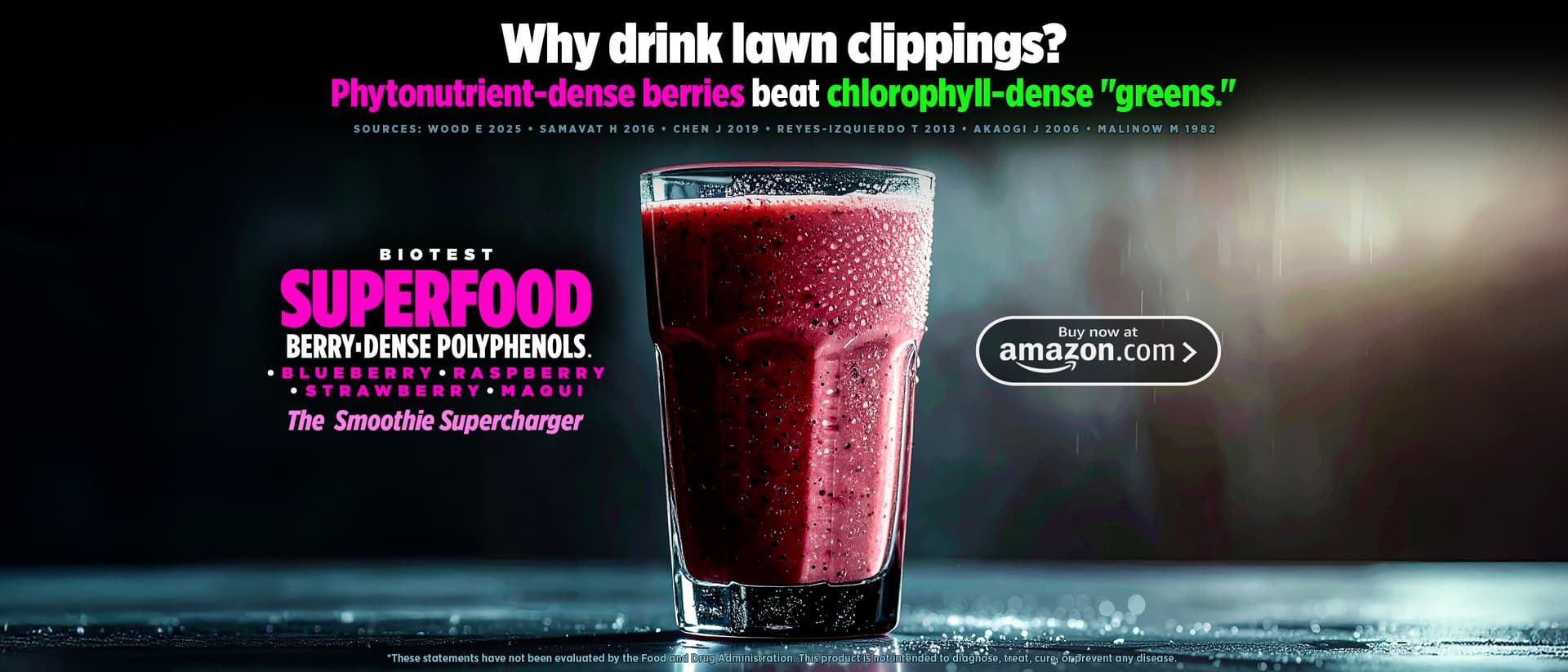by Chris Shugart
It's hard not to feel anxious these days, but a new study tells us that certain natural substances help fight it off.
Psychologists are mad. They're ticked off because everyone is diagnosing themselves with serious mental health issues after watching a few social media clips. And once self-diagnosed, many of these people adopt their questionable diagnosis and make it their whole dang personality. Weird.
But as the good shrinks remind us, you can be sad and not have depression. You can lose focus occasionally and not have ADHD. And you can be worried or nervous and not have anxiety.
Real anxiety is a wrecking ball. And the drugs used to treat it have side effects like sexual dysfunction, nausea, and fatigue. That's why the new study below, a narrative review, is exciting. It looks at how we might be able to treat (or prevent) anxiety using natural substances.
Wait, do I have anxiety? That makes me nervous!
Anxiety is common. There are several levels, though, from having a generalized fear of impending troubles to panic attacks and even phobias.
Real shortness-of-breath level anxiety is characterized by dysregulation in your neurotransmitter systems, including serotonergic, dopaminergic, and GABAergic pathways, which contribute to heightened fear responses, constant worry, and physiological symptoms like increased heart rate and tension.
Pathophysiologically (there's your big word of the day), anxiety involves neuroinflammation, oxidative stress, and hyperactivity of the HPA axis. This leads to elevated cortisol and impaired stress regulation. It affects brain regions like the amygdala (involved in emotional processing) and prefrontal cortex (critical for cognitive control), ultimately resulting in reduced neurogenesis – the production of new neurons – and synaptic plasticity.
The new study
This study explored the potential of flavonoids, compounds found in plants, as therapeutic agents for anxiety disorders. As a reminder, flavonoids are polyphenolic compounds known for their antioxidant, anti-inflammatory, and neuroprotective properties. Flavonoids seem to modulate those systems mentioned above to reduce anxiety. Here's how:
- Neurotransmitter Modulation: Flavonoids interact with GABA receptors, enhance serotonin signaling, and regulate dopamine, contributing to anxiolytic (anxiety-reducing) effects.
- Anti-inflammatory Effects: Flavonoids reduce neuroinflammation by inhibiting pro-inflammatory cytokines, implicated in anxiety pathophysiology.
- Antioxidant Properties: Flavonoids mitigate oxidative stress in the brain, protecting neurons and supporting cognitive function.
- Neuroprotection: Flavonoids promote neurogenesis and synaptic plasticity, improving resilience to stress and anxiety.
As always, more research is needed, especially for dosing. But by "dosing," we're really just talking about eating and supplementing. Flavonoids are, after all, plant compounds.
While you may not be clinically anxious, you are dealing with stress and anxiety because you're human. Getting plenty of flavonoids in your diet boosts resilience so you can feel anxious without that feeling snowballing into hardcore anxiety.
What to eat and take
Flavonoids are the largest class of polyphenols. They're found in green tea, legumes, fruits, berries, and vegetables. So, eat a big variety of those daily. If washing down buckets of berries and kale with green tea every day seems daunting, use a powdered supplement rich in flavonoid-heavy foods.
Biotest Superfood (Buy at Amazon) contains 18 whole-food extracts (even green tea). Just toss a scoop into a glass of water, a protein shake, or some yogurt.
We can't say yet that a serving a day keeps the anxiety away, but flavonoids definitely strengthen our stress-fighting natural abilities.
Note: If you're already taking C3G for its body composition effects, it too is a flavonoid. C3G exhibits antioxidant, anti-inflammatory, and neuroprotective properties, which align with the anxiolytic potential discussed in the study.
Reference
- Singla, Riya, et al. "Flavonoids and Anxiety: Decoding Their Role in Brain Function and Pathophysiology." Medicine in Drug Discovery, Volume 27, September 2025, 100214.


